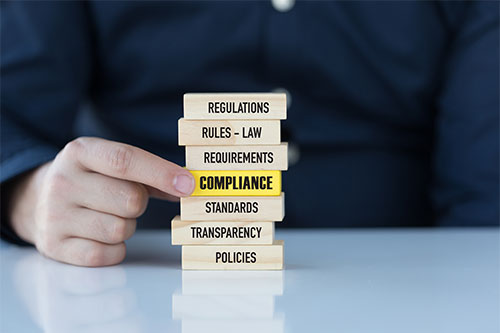7 Behaviors to Avoid in an Audit Situation
It goes without saying that an IRS audit is an unwelcome event. You do not want one, do not want to sit through one, and you do not want to experience negative financial consequences. Unfortunately, the first two consequences are unavoidable, but the third could be avoided or reduced in unpleasantness if you refrain from some behaviors. Not necessarily in order of importance, here are 7 things you should avoid doing when you are being auditedi.
#1 – Do not arrive without a tax attorney.
Many tax professionals provide the service of attending audits with you, and you could take advantage. However, though they can answer questions about what they did, the most valuable person in the room should be an experienced tax attorney working for you. Their practice specialty is a thorough knowledge of the tax rules and regulations and how the IRS enforces compliance. The attorney will know if and when the auditor is looking at things beyond the scope of their authority. Tax attorneys will know ways to avoid or reduce penalties as well.
#2 – Do not behave unprofessionally or fail to cooperate.
This seems like an obvious thing, but you may be surprised how some people react when they feel threatened by an auditor’s delving into their records and asking questions. Even if the auditor is being curt or does not seem friendly, you must maintain an attitude of calm and cooperation.
#3 – Do not provide original documents to the auditor.
When an auditor asks for receipts or other documentation and leaves the room, you will almost never see those documents again. For this reason alone, NEVER give them originals. Bring copies of everything. There is nothing in the regulations that requires that you provide originals of documents.
#4 – Do not submit false documents or provide untrue information.
This is another obvious thing, but it is a fact that some people end up submitting false documentation or, mistakenly or not, telling the auditor something that is not true. Sometimes a lost receipt causes a person to create another one that is accurate, but it is not the real document. Unfortunately, this is not the real document and could be considered the submission of false documentation. Do not take a chance on being charged with a crime.
#5 – Do not do the auditor’s job for them.
Remember who the auditor works for and what their goal is. Generally, an in-person audit exists because the IRS has doubts about representations or documentation in your return. Their goal, though stated as verification of return representations, is to make the process a revenue generator. They do not want to leave the table without some of your money if their doubts about your return are valid. Do not give them reasons to delve deeper or investigate further.
#6 – Do not provide information you are not asked for.
Along with the previous item, talking too much can get you into trouble in an audit. Be polite, answer questions, but do not elaborate any more than required. Every time you speak, the auditor is learning more about you, your business, and your financial habits. Even things you say that you think are trivial or harmless can be clues to the auditor about where to expand their inquiries.
#7 – Do not avoid asking questions about the process why they are doing something.
As a taxpayer you do have rights. Though you should be polite, you do not have to be an easy mark. If you are wondering why an auditor is questioning something on your return, it is fine for you to ask them about it. You can question why they are delving into something or even disagree with something. Just do not do it in a confrontational manner.
Though some of these things seem obvious, when you get that audit appointment notice, you can become distracted and worried. Refer to this “do not” list before the appointment to stay out of trouble.
i Seven Things Not to Do During an Audit – Smallbizclub.com

